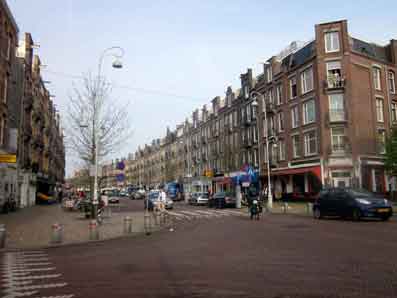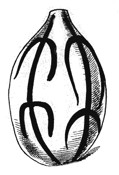Budget Monitoring And Citizen Participation In The Netherlands
My name is Noureddine and I am a member of the training group that deals with budget monitoring. We have examined the prospects paper for 2013. On page 26 of the bill it is stated that in 2013 there will be 197 million euros in expenses. We’ve got an overview of the financial statements of 2011, which states that the district spent 243 million euros in 2011. Are we correct in understanding that over the next three years, spending will be cut by 46 million euro? In 2016, the expenditure is budgeted at 179 million. Meaning a 64 million difference. Was that the intention?
The expenditure in the social domain in 2011 was 68.7 million euros. If you look at the budget in the perspectives note, you end up with a total of 59 million for the social domain (counted are: work, income and economy, education and youth, welfare and care, sports and recreation, culture and monuments). This means that the social issues will receive almost 10 million euros less in the next 3 years.
Introduction
Thus spoke Noureddine Oulad el Hadj Sallam, one of the participants in the experiment Budget monitoring in the Indische Buurt (Indische Neighborhood) in Amsterdam during the meeting of the Council Committee Social of the municipality of Amsterdam (city district east) in June 2012. His speech addressed the content of the municipality’s perspective paper for 2013.
Noureddine’s speech signifies a unique moment in the Netherlands. Not only because a citizen without a financial educational background commented on the expenditure of the budget made by a governmental organization. But also because it led to a change in the way the local government determines the priorities of the prospective budget for 2014; namely, in co-creation with citizens. Co-creation entails collaborative decision-making concerning the allocation of the budget by citizens and civil servants. It is an important contribution to the enhancement of civil society within the Netherlands.
This paper describes the methodology of budgetmonitoring and its operationalization via the project in the Indische Neighborhood. The 12-month pilot project was realized by The Centre for Budget Monitoring and Citizen Participation, in collaboration with E-motive, University of Applied Science in Amsterdam (HvA), MOVISIE and members of local communities in the neighborhood. Read more
From The Web – Transparency International
![]() One global movement sharing one vision: a world in which government, business, civil society and the daily lives of people are free of corruption.
One global movement sharing one vision: a world in which government, business, civil society and the daily lives of people are free of corruption.
In 1993, a few individuals decided to take a stance against corruption and created Transparency International. Now present in more than 100 countries, the movement works relentlessly to stir the world’s collective conscience and bring about change. Much remains to be done to stop corruption, but much has also been achieved, including:
– the creation of international anti-corruption conventions
– the prosecution of corrupt leaders and seizures of their illicitly gained riches
– national elections won and lost on tackling corruption
– companies held accountable for their behaviour both at home and abroad.
GLOBAL REACH, LOCAL KNOWLEDGE
Through more than 100 national chapters worldwide and an international secretariat in Berlin, we work with partners in government, business and civil society to put effective measures in place to tackle corruption.
INDEPENDENT AND ACCOUNTABLE
We are politically non-partisan and place great importance on our independence. We alone determine our programmes and activities – no donor has any input into Transparency International’s policies. Our sources of funding are made transparent as is our spending.
Read more: http://www.transparency.org/
Lévi-Strauss – A Propos Tristes Tropiques
P.S. This is intended for non-profit commentary and educational purposes. No copyright infringement intended. Copyright Disclaimer Under Section 107 of the Copyright Act 1976, allowance is made for “fair use” for purposes such as criticism, comment, news reporting, teaching, scholarship, and research. Fair use is a use permitted by copyright statute that might otherwise be infringing. Non-profit, educational or personal use tips the balance in favor of fair use.
An Introduction To Three Nambikwara Ethnohistories
January, 2019: Edwin B. Reesink – Allegories of Wildness – Three Nambikwara ethnohistories of sociocultural and linguistic change and continuity – Rozenberg Publishers – ISBN 978 90 3610 173 8 – 2010 – will be online soon.
International fame for the Nambikwara came from the central role they play in the work of the late Claude Lévi-Strauss. In his most popular book, Tristes Tropiques, over fifty years ago, he already had painted a particular picture of the Nambikwara way of life. Until the end of his long life this great scholar reminisced about his formative years in anthropology and the influence of the several Indian peoples he encountered during his travels in the interior of Brazil. In effect, the Nambikwara, as seen in the quote, occupy a special place, one not just of scientific interest but particularly one of a sympathy and feeling sometimes not readily associated with this anthropologist. At the time of the travels by Lévi-Strauss and the other people of his expedition, the dry season of 1938, the Nambikwara happened to be in an intermediate phase of their history: enjoying their political autonomy yet already shaped and devastated by the encroachment of Brazilian society.
The sparse, intermediate but regular contacts with Brazilians made them susceptible to being devastated yet further by epidemics. Previously, from 1907 onward, the Brazilians by means of the so-called Rondon Mission penetrated into the vast territories in which lived a large number of different local groups who each considered themselves to be different from their neighbours. Rondon, the State and later researchers recognized this diversity but ultimately still tended to maintain the idea of “one Nambikwara people”. Rondon’s purpose was to build a telegraph line to the Madeira River and hence to connect Amazonia with the rest of the country while, concomitantly, preparing to take possession of an enormous territory inhabited by a number of independent peoples. Rondon and some of his people succeeded in establishing a pacific relation with a number of local peoples of the Nambikwara ensemble: mainly those of the Parecis Plateau and north of Vilhena (in what is now Rondônia).
*
All I can say to you is that the few months I spent among the Nambikwara may have been those I retain the best memories of, among all of the contacts I had with other populations in Brazil. (…) there has been no Indian population I have known that has attracted so much and with whom I felt so close.
(Lévi-Strauss; from interviews with Marcelo Fiorini, end of 2004 and beginning of 2005, published in Ethnies nr. 33-34, pp. 108-9; my translation).
*
The building of the Telegraph Line and the establishment of stations and agricultural activities to support the annual expeditions and the posterior sustenance of the people manning the telegraph posts, already meant a significant penetration into their lands. The best known Nambikwarist, the late David Price, estimated the overall territory of all local peoples at this time to have been some 500.000 square kilometers, something like the size of France. One might say that the actual land taken in the beginning represented a very small amount of this total. However, the peaceful relations established with a few villages already implied that contagion of unknown diseases would necessarily follow. The very fact that Rondon represented the Republic – that is so-called “national sovereignty” – when he penetrated these lands and simply took possession of what he needed is also highly significant. The Line was a line of colonialist penetration initiating the expropriation of natural resources and potential genocide which such a venture always engendered. Rondon knew he was entering the homelands of another people and, being uninvited, felt violent reactions against him and his subordinates were justified. Hence he was determined not to retaliate and to find ways of establishing and maintaining friendly relations. Yet there was never any doubt that the Republic came first and was entitled to take factual possession of what “already belonged” to it. On the other hand, Indians were people, and precisely because of that human condition could be elevated to higher levels of “civilization”, even to be “citizens”: if the Republic subtracted territory from “its Indians” then it should take care of them by “civilizing” these people and, for example, by “educating” such “semi-nomads” so they could henceforth live comfortably in the very much smaller area that was to be magnanimously granted to them by the State. At the end of his life Rondon is said to have regretted his actions as they did not produce the beneficial effects he expected. If so, he was right in the end. The official State policy of civilizing did neither work in the expected way nor offer real benevolent protection against the greed of colonialist expansion and expropriation of territory, tremendous riches and wealth by Brazilian society. Nor against genocidal practices, sometimes even promoted – camouflaged but real – by the State itself. Only very recently in history the legal protection became more efficient, recognized ampler territorial rights and expanded to include cultural and linguistic rights. Needless to say that Brazilian society in general still holds on to evolutionary and ethnocentric views that demote Indian peoples to either innocent or brutal savages. And, even today, for what seems to be the great majority, these abstract “Indians” are granted far too many rights when they are held to be standing in the way of “progress”. Read more
From The Web – Global Voices
 Global Voices is a community of more than 700 authors and 600 translators around the world who work together to bring you reports from blogs and citizen media everywhere, with emphasis on voices that are not ordinarily heard in international mainstream media.
Global Voices is a community of more than 700 authors and 600 translators around the world who work together to bring you reports from blogs and citizen media everywhere, with emphasis on voices that are not ordinarily heard in international mainstream media.
Millions of people are blogging, podcasting, and uploading photos, videos, and information across the globe, but unless you know where to look, it can be difficult to find respected and credible voices. Our international team of authors,volunteer authors and part-time editors are active participants in the blogospheres they write about on Global Voices.
Global Voices is incorporated in the Netherlands as Stichting Global Voices, a nonprofit foundation. We do not have an office, but work as a virtual community across multiple time zones.
Our History
Global Voices was founded in 2005 by former CNN Beijing and Tokyo Bureau Chief, Rebecca MacKinnon and technologist and Africa expert, Ethan Zuckerman while they were both fellows at the Berkman Center for Internet and Society at Harvard University. The idea for the project grew out of an international bloggers’ meeting held at Harvard in December 2004 and it began as a simple blog.
Global Voices quickly expanded thanks to patronage of the Berkman Center, support from Reuters, the MacArthur Foundation, and the energy and creativity of our contributors.
Read more: http://globalvoicesonline.org
From The Web – 2013 World Press Freedom Index: Dashed Hopes After Spring
 After the “Arab springs” and other protest movements that prompted many rises and falls in last year’s index, the 2013 Reporters Without Borders World Press Freedom Index marks a return to a more usual configuration.
After the “Arab springs” and other protest movements that prompted many rises and falls in last year’s index, the 2013 Reporters Without Borders World Press Freedom Index marks a return to a more usual configuration.
The ranking of most countries is no longer attributable to dramatic political developments. This year’s index is a better reflection of the attitudes and intentions of governments towards media freedom in the medium or long term. The same three European countries that headed the index last year hold the top three positions again this year. For the third year running, Finland has distinguished itself as the country that most respects media freedom. It is followed by the Netherlands and Norway.
Although many criteria are considered, ranging from legislation to violence against journalists, democratic countries occupy the top of the index while dictatorial countries occupy the last three positions. Again it is the same three as last year – Turkmenistan, North Korea and Eritrea.
“The Press Freedom Index published by Reporters Without Borders does not take direct account of the kind of political system but it is clear that democracies provide better protection for the freedom to produce and circulate accurate news and information than countries where human rights are flouted,” Reporters Without Borders secretary-general Christophe Deloire said.
“In dictatorships, news providers and their families are exposed to ruthless reprisals, while in democracies news providers have to cope with the media’s economic crises and conflicts of interest. While their situation is not always comparable, we should pay tribute to all those who resist pressure whether it is aggressively focused or diffuse.”
Read more: reporters without borders
See also: http://www.freedomhouse.org




